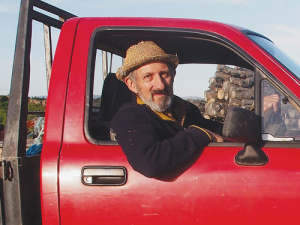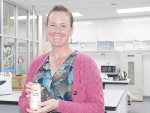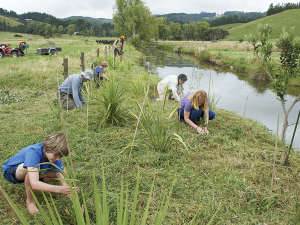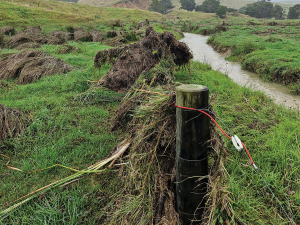Rural New Zealanders’ lives are at risk every day because of poor cellphone and internet connectivity and inequitable health services.
The government needs to help remove barriers to rural people’s health being considered as important as that of city dwellers.
The Rural Health Alliance of Aotearoa NZ (RHAANZ) has 47 national member organisations: rural health providers, agribusiness and community groups, universities and local councils.
Last month, we held national rural conferences and meetings in Wellington. Later I outlined to Health Minister Jonathan Coleman the priorities RHAANZ has for improving health services in rural areas: rural wellbeing, rural connectivity, rural research and policy, rural health services and the rural health workforce.
We reminded him that the 600,000 people living in rural regions -- effectively NZ’s ‘second-largest city’ -- are an important constituency economically and politically. Overseas evidence links health and wellbeing to economic productivity. Intuitively this will apply in NZ, so it is an imperative rural people receive their fair share of publicly funded health services and have equitable access to health services.
We asked the minister to reinstate rural proofing in all government departments and we want to fast-track a new definition of ‘rurality’ as it pertains to health services. These are two important ways we can hold policy-makers to account for equitable health outcomes for rural people.
Mobile phone blackspots remain a serious issue in rural NZ, especially in case of emergencies. Poor broadband connectivity is a barrier to education and the slow pace of UFB and RBI2 roll-outs are dampening progress, production and innovation.
The responses to big disasters such as last year’s Hurunui-Kaikoura-Marlborough earthquake show what can be done in an innovative way to bring services to rural areas. Much of what is learned from such events needs to become ‘business as usual’. What a pity it takes a big earthquake to bring this about.
We also know unrealistic expectations are imposed on the rural health workforce especially after hours and during emergencies. Our rural health workforce is ageing, tired and burned-out and we need better retention and recruitment. We need greater workforce flexibility, nurse practitioners and pharmacists for example, as a key way to improve access to health services for rural people.
We also need to make our small towns liveable so that people want to come and to stay. Restoring the vibrancy to rural communities would help solve many of our issues.
We want a national ‘virtual health care’ service for rural NZers, bringing services closer to rural people and helping them to age in their own homes. The technology and expertise is there, now we need, in this election year, evidence of political will to see it happen.
Agriculture and tourism are the powerhouses of our economy. Each year at least 2.5 million tourists visit rural NZ. In 2011-2012, $40 billion -- that’s 19% of GDP -- was generated directly or indirectly by the agri-food sector.
The Government needs to work with our ideas on rural health and social services if it wants the sector to thrive. We will meet the health minister again at the opening of the Health Hub at National Fieldays.
• Dr Martin London is chair of the Rural Health Alliance of Aotearoa New Zealand (RHAANZ).



















